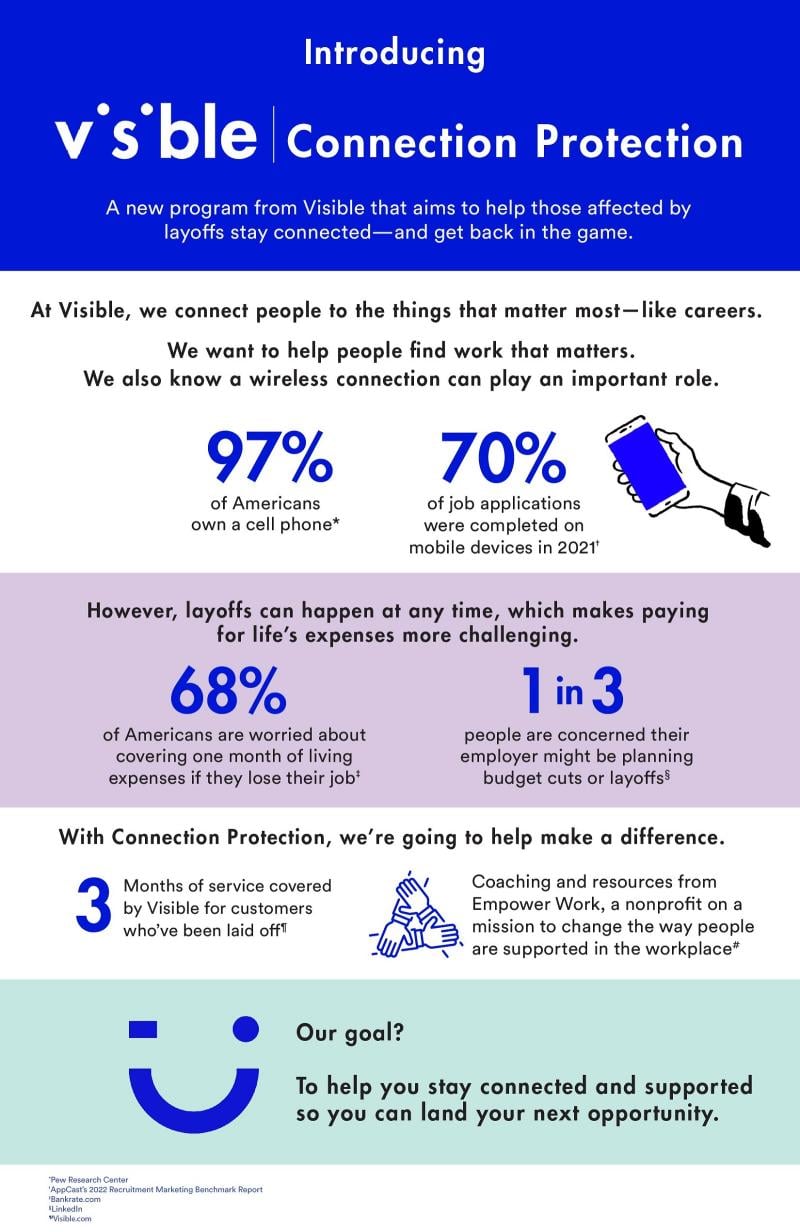Verizon’s all-digital Visible prepaid brand is trying to give back to its communities, and one way is through Connection Protection, a new program designed to help people keep a wireless connection when they’re laid off.
The program provides three months of free Visible service to people who qualify through its partner, Empower Work, a non-profit providing resources for people who are laid off. Of course, Visible hopes people will stick with its brand after those three months; it offers single-line $30/month unlimited plans that look pretty affordable.
“The reality is your wireless service is your connection to the world, so when you’re laid off, it’s a very, very important utility,” including when it comes to finding a new job through job sites, said Verizon Value President Angie Klein.
And after the three months? “We also think they’re going to stay,” she said.

The program was launched in conjunction with Visible Impacts, a new social impact platform focused on powering connections to people’s most basic needs. According to Visible, when it was founded about four years ago, social impact was a central tenet of its business, and it’s tried to stay true to that theme with give-back campaigns.
It’s also involved in Connected Food to help relief organizations provide food for people and Connected Community, which focuses on LGBTQ+ and using mobile technology to foster a sense of belonging.
On Connection Protection, it pays to read the fine print before jumping in. For example, in order for new members to be enrolled, they need to pay $5 per month for the first three months to receive service, and they’ll be reimbursed with a gift card once enrolled to cover this expense. Existing Visible members will be reimbursed with a gift card based on their selected plan.
Some of this “fine print” is why Jeff Moore, principal of Wave7 Research, said he’s skeptical about the practicality of Visible’s new Connection Protection program.
For one thing, he questions the need for it given how many people view their wireless service as essential and will make it a priority to pay for it. For another, the government’s Affordable Connectivity Program (ACP) is available to help people who need assistance getting mobile services.
“I just don’t think this will have any kind of competitive impact,” he said, noting that it’s easier for Visible to do this kind of offer versus an MVNO because it’s owned by Verizon, and therefore enjoys the benefit of owner’s economics.